
The Free Press

In 2022, Andrew Tate was the most googled person in the United States. He had managed to build a massive following online—especially among young men and on the far-right—with a potent mix of cultural criticism, self-help bravado, and the sort of unvarnished misogyny that is rare even among misogynists. Then, in December, he was arrested in Romania on sex-trafficking charges. Until the platform banned him, TikTok videos of Tate had been viewed more than 11 billion times.
But I had been interested in Tate for another reason: his religious identity.
In October, the British-American ex-kickboxer had converted to Islam. Known for his libertine lifestyle—including running a sex-cam business—he seemed an odd fit for the moral strictures of Islam. And he was.
Muslim reaction to Tate’s very public announcement of his conversion on the social media site Gettr was split: Some saw it as an opportunity to share the good word. Others were horrified, fearing Tate would re-popularize stereotypes about Islam subjugating women.
That difference of opinion mostly reflected differing politics. Like other minority communities, American Muslims, and especially young American Muslim men, had become increasingly divided between the “woke” and the “anti-woke.” The anti-woke, or “based,” were into Jordan Peterson. They were also into Andrew Tate, whose story, whose brand, had come to embody a defiant, wholesale rejection of the norms, habits, and beliefs of the progressive mainstream.
After Tate’s arrest, I braced myself for media coverage about his newfound faith. But it was like no one in the legacy press was even aware he had converted.
The Economist ran a profile of Tate that tried to answer the question on the minds of millions: Who is this guy? I was surprised (and relieved) to find that the profile made no mention of Tate’s religion. Ditto The Washington Post and The Guardian. With the exception of Muslim Twitter, I could barely find any mention of it at all.
As far as I was concerned, this was progress. So what if Tate was Muslim? People of all faiths do bad things and have bad ideas, and Muslims were no exception. Finally, we were normal.
But it was intriguing.
Tate’s conversion to Islam is the most striking example yet of a growing phenomenon—the rise of what the theologian Massimo Faggioli calls “political conversions.” Consider that, when Tate explained why he chose Islam, he didn’t mention theology, salvation, the Quran, the Prophet Muhammad—or anything to do with spirituality or faith.
“Islam very closely reflects my personal beliefs,” he said in an interview with the Muslim polemicist Mohammed Hijab. “In my personal life, I’ve learned that if you don’t have standards, and if you’re not a strong person who’s prepared to defend his ideas, you’ll get crushed.”
As Tate sees it, where Christianity in the West is weak, undemanding, and devoid of firm rules, Islam is exacting, masculine, and vigorous. It refuses to be mocked, and it refuses to accommodate itself to progressive norms—particularly when it comes to gender and the family. Where Christianity has, in effect, accepted defeat, Islam, Tate said in the same interview, “feels like the last religion on Earth,” the only faith that stands a chance of mounting an effective resistance to moral decay and decline. (Whether Tate himself is moral, or wishes to be, is secondary.)

It is difficult to say just how widespread “political conversions” are, but recent survey data shows they are spreading. According to a 2020 Pew poll, evangelicals, for example, were one of the few religious groups to gain members over the last four years.
But there was a catch. Many of these self-identified evangelicals don’t go to church. They identify as evangelicals because of what it means politically. As the political scientist Ryan Burge notes, “Instead of theological affinity for Jesus Christ, millions of Americans are being drawn to the evangelical label because of its association with the G.O.P.”
I do not mean to suggest that many political converts aren’t believers—including Andrew Tate. In a somewhat amusing defense of Tate’s conversion (which compared Islam to a toaster), the YouTube personality Smile 2 Jannah cited a saying of the Prophet Muhammad urging Muslims not to doubt the sincerity of seemingly dubious conversions.
And what Andrew Tate is doing—emphasizing the politics of faith over spirituality—isn’t entirely novel. Religion is never just about religion, after all. As the Christian theologian William Cavanaugh argues in his 2009 book The Myth of Religious Violence, the decoupling of politics and faith is an “invention of the modern West.”
Yet, Tate’s conversion does tell us something important about what is happening in America right now.
As the culture continues to secularize, to become more detached from any underlying moral vision, right-wing intellectuals have responded by gravitating toward more demanding forms of Christianity, particularly Eastern Orthodoxy and Catholic integralism. Among the more prominent converts has been the conservative author Sohrab Ahmari, who grew up in a secular home in Iran, immigrated to the United States, and eventually embraced Catholicism, which Ahmari credits with imposing a “tremendous order and metaphysical direction” to his life. Like Islam, these religious orientations are perceived to be tougher, more masculine, more grounded in rules rather than sentiments. They order freedom by constraining it. They not only entail exacting rites and rituals; they are explicitly about not making concessions to secular modernity.
Some of these Christian culture warriors have come to view Islam as a resource and Muslims as allies in the long struggle against progressive cultural dominance. The conservative author Rod Dreher—who converted to Eastern Orthodoxy in 2006, before it was cool—described his admiration in a post titled “Islam: ‘The Last Badass Religion.’ ”
“That’s something I respect about Muslims in general,” Dreher wrote, “they take their faith a lot more seriously than we Christians do. The only forms of Christianity that are going to survive the dissolution now upon us are going to be those that are serious about the faith, and incorporate it into disciplined ways of living.”
Ahmari put it this way: “I view Islam with greater respect as a Catholic than I ever did as a secular [person] or as an atheist.”
This tells us something about the all-consuming political divide in America today, which is less about politics than culture—which is to say, religion. After all, religion—or its absence—shapes our habits, norms, and attitudes. Secularization doesn’t make religion irrelevant; instead, it creates new ways of being “religious.”
All of which explains how evangelical voters flocked en masse to Donald Trump, and why some Muslims, despite everything, insist on seeing Andrew Tate as a flawed but necessary vessel. They don’t care what he believes so much as what he signifies. In the end, it didn’t matter what was in his heart—and how was one to know what was there, anyway? What mattered was his politics, since politics has become its own kind of faith.
Is this the first you’re hearing of political conversion? Or is this a phenomenon you’ve followed? Tell us in the comments.
And if you believe in the work we do at The Free Press, become a subscriber today:

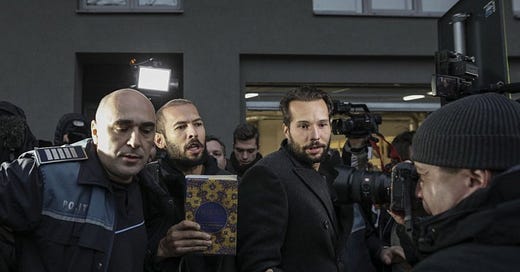

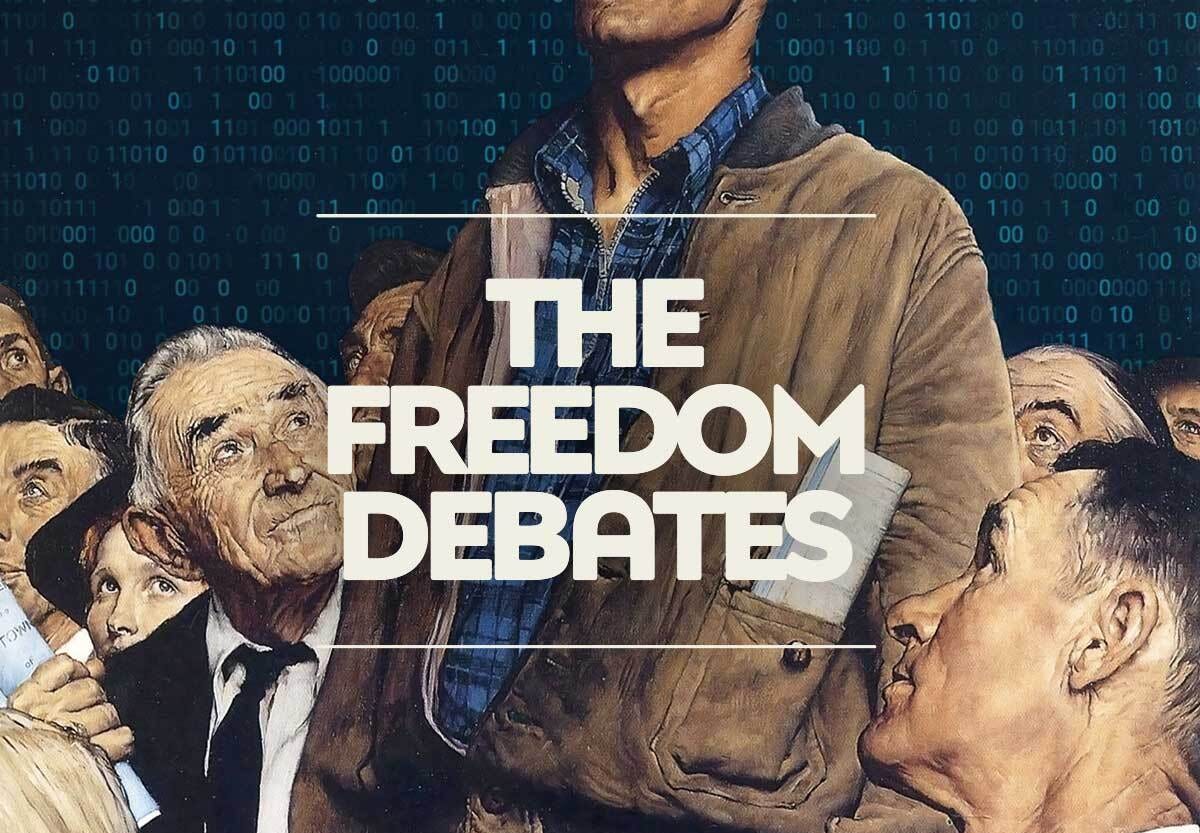

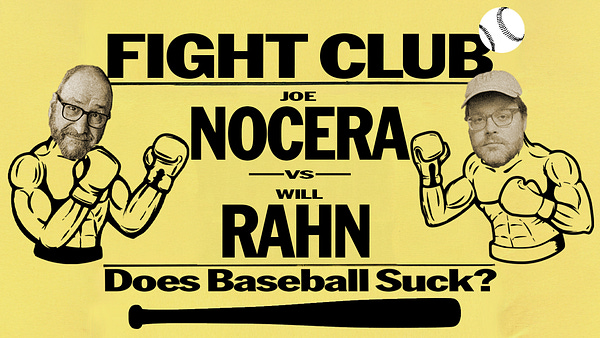

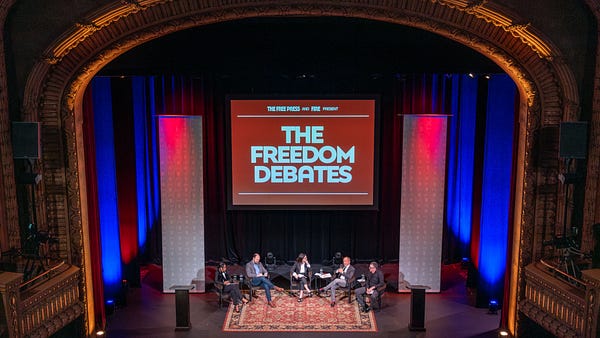



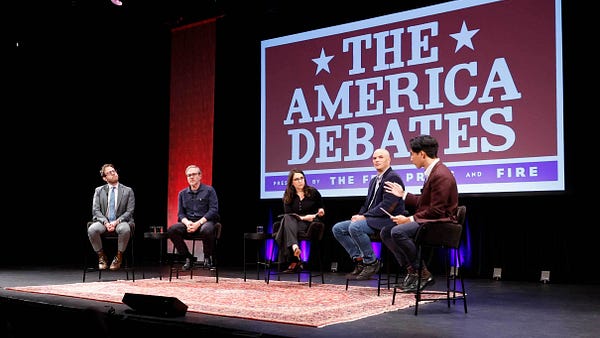

How can the author not see that Woke is exactly the kind of rigid all-encompassing religion that he claims is the draw for the people he cites??
Additionally, it has the draw of being cool and ascendant. It controls every institution in America. It allows you to metaphorically stone to death apostates. That’s mighty attractive to a lot of lost angry people.
Wow, what an interesting post. Just because much of Christianity has gone soft in accommodating way, I see no reason to abandon orthodox Biblical Christianity. I have never understood the faithful evangelicals who convert to Catholicism because it involves the adoration and virtual worship of Mary, the mother of Jesus. To convert to Islam because it takes itself seriously strikes me in a similar way. I am interested in the truth. Islam and the Koran have not proven their authenticity while the Bible is the most authentic and true of ancient literature. Yes, there is a certain beauty in the liturgy of the Eastern Orthodox Church but does that Church provide a better path to the deep truth represented by Jesus? I do not think so. It is good for people to pursue religious truth.